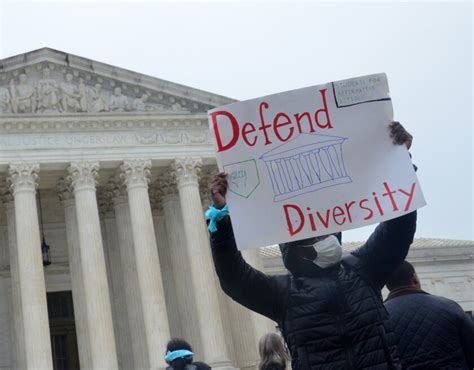Introduction
In the wake of escalating racial tensions and growing calls for racial equity in higher education, Fayetteville State University (FSU) has implemented a race-conscious admissions program. This bold move has sparked a heated debate about the role of race in college admissions. In this article, we will delve into the complexities of FSU’s program, examining its history, rationale, implementation, and impact.

Background: The Case for Diversity
FSU’s admissions program is rooted in a deep commitment to diversity and inclusion. The university recognizes that a diverse student body enriches the learning experience for all students, fostering critical thinking, empathy, and cross-cultural understanding. Research consistently shows that students who attend diverse institutions are more likely to be exposed to different perspectives, develop stronger communication skills, and demonstrate higher levels of cultural competence.
The Past and Present of Race-Conscious Admissions
Race-conscious admissions programs have been used in the United States for decades. The landmark Supreme Court case Grutter v. Bollinger (2003) established that race could be considered as one factor among many in college admissions decisions, provided that the program was narrowly tailored to achieve a compelling interest, such as promoting diversity.
FSU’s program, which was implemented in 2020, follows the Grutter precedent. The university’s stated goal is to increase the enrollment of underrepresented minority students, who have historically been underrepresented on FSU’s campus.
Key Features of FSU’s Admissions Process
FSU’s admissions process is holistic, considering a range of factors including academic performance, extracurricular activities, and personal statements. Race is not the sole or primary factor used in admissions decisions. However, it is one factor that is used to assess the applicant’s potential to contribute to the diversity of the student body.
The university has developed a specific set of criteria for evaluating applicants’ race. These criteria include:
- The applicant’s self-identified racial or ethnic background
- The applicant’s experiences with racial or ethnic discrimination
- The applicant’s commitment to diversity and inclusion
Impact and Controversy
FSU’s race-conscious admissions program has generated both support and opposition. Proponents argue that the program is essential for creating a more diverse and inclusive campus. They cite data showing that the percentage of underrepresented minority students at FSU has increased since the program was implemented.
Opponents contend that the program is unfair and discriminatory. They argue that it gives preferential treatment to minority students at the expense of more qualified white students. They also raise concerns that the program could lead to racial quotas or reverse discrimination.
Legal Challenges
FSU’s race-conscious admissions program has faced legal challenges. In 2021, a group of white students sued the university, alleging that the program violated their rights under the Equal Protection Clause. The case is currently pending in federal court.
Future of Race-Conscious Admissions
The future of race-conscious admissions is uncertain. The Supreme Court is expected to rule on a case involving affirmative action in college admissions during its 2023-2024 term. The court’s decision could have a major impact on the legality of race-conscious admissions programs across the country.
Conclusion
FSU’s race-conscious admissions program is a complex and controversial issue. There are strong arguments both for and against the program. The future of race-conscious admissions is uncertain, but it is likely to remain a topic of debate for years to come.
Additional Insights and Discussion Points
1. The Value of Diversity
Research has consistently shown that diversity in higher education benefits all students. Diverse campuses promote critical thinking, empathy, and cross-cultural understanding. They prepare students to live and work in an increasingly globalized world.
2. The History of Racial Discrimination
The underrepresentation of minority students on college campuses is a legacy of systemic racism in American education. Race-conscious admissions programs are one way to address this legacy and create a more equitable future.
3. The Importance of Holistic Admissions
FSU’s race-conscious admissions program is not a quota system. It is a holistic approach that considers a range of factors, including race, academic performance, and extracurricular activities. Race is not the sole or primary factor used in admissions decisions.
4. The Legal Landscape
The legality of race-conscious admissions programs is uncertain. The Supreme Court is expected to rule on a case involving affirmative action in college admissions during its 2023-2024 term. The court’s decision could have a major impact on the future of race-conscious admissions.
Key Data Points:
- According to a 2021 study by the National Center for Education Statistics, only 13.7% of Black students and 10.6% of Hispanic students attend a selective college or university.
- A 2020 study by the Pew Research Center found that 73% of Americans support race-conscious admissions programs that give preference to minority students.
- FSU’s race-conscious admissions program has led to an increase in the percentage of underrepresented minority students on campus. In 2020, the percentage of Black students at FSU was 30%, up from 27% in 2019. The percentage of Hispanic students increased from 12% to 14% during the same period.
Tips for Navigating the Admissions Process:
- Be yourself. Don’t try to conform to what you think admissions officers want to hear.
- Highlight your unique experiences and perspectives. Race is just one part of your story. Share your experiences with diversity and inclusion, as well as your commitment to creating a more equitable world.
- Be persistent. The admissions process can be challenging, but don’t give up. If you don’t get into your first-choice school, there are other colleges and universities that will value your talents and perspectives.
Conclusion:
FSU’s race-conscious admissions program is a complex and controversial issue. There are strong arguments both for and against the program. The future of race-conscious admissions is uncertain, but it is likely to remain a topic of debate for years to come.
